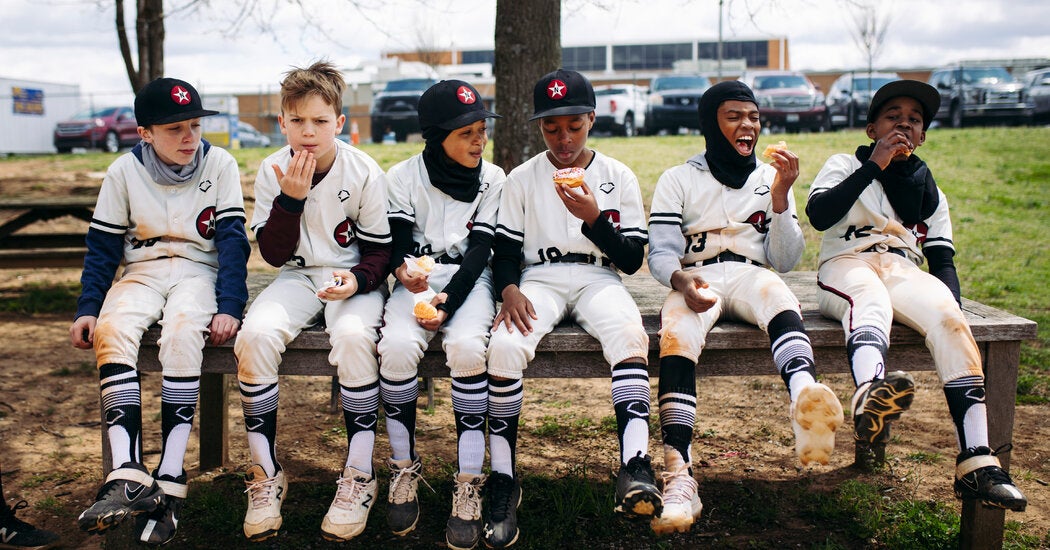
NASHVILLE — It’s fitting that the Nashville Stars, a team for players ages 10 and under, are named in honor of an old Negro leagues team that played in Music City in the 1930s, ’40s, and ’50s. From the aggressive base running to the all-Black coaching staff and the speaker blaring a mix of hip-hop and R&B from the bleachers, the Stars embody the energy and excitement that made pre-integration Black baseball a cultural phenomenon as much as a sporting attraction. The team also serves as a stark contradiction of the stereotypical image of American youth baseball.
For the kids on this team, the majority of whom are Black, baseball isn’t a spring stopgap to hold them over until football season starts, or the free activity sponsored by the community organization that may or may not receive financial support from Major League Baseball. For these kids, baseball is both passion and purpose.
As Major League Baseball and the sport’s wider community celebrate the 75th anniversary of Jackie Robinson’s debut with the Brooklyn Dodgers, the inclination is to look to the past, to examine what Robinson accomplished with his pioneering efforts — and, ultimately, what he didn’t. Robinson’s willingness to turn the other cheek and his ability to succeed in the face of overt racism may have made him an icon and hero, but it didn’t make the sport less hostile to Black people on the whole.
Today, the number of African-American players in the majors is at its lowest point since the 1950s, when some teams had yet to sign a Black player, and the number of Black youth in the sport isn’t much higher. According to a report from the Sports and Fitness Industry Association, only 11.1 percent of Black American children played baseball in 2018 — a statistic that impacts the numbers of athletes competing at the highest level.
This lack of participation is often attributed to the high costs associated with youth baseball and a general lack of access to the sport for many Black youths in their urban neighborhoods. But the Stars aren’t a team of “inner-city kids,” and many of the Black parents in the program don’t have a problem buying $300 bats and paying for extra training fees. Here, their children find refuge from other challenges that plague the youth game, and thanks to the leadership of Black men who are committed to pushing Robinson’s legacy forward, they are able to play the game they love without compromise.
